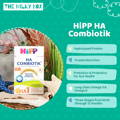Food allergy manifests differently in infants, mainly because their immune system is not fully developed yet. It mainly manifests as diarrhea, colics, and occasionally, as skin rash. If you notice these symptoms after a feeding, you should see your pediatrician so they can run tests and prescribe a different formula.
Baby Poop Guide: Is This Normal?
By: Dr. Maria Cerino - June 24, 2024 - 15 Minute Read

As you and your group of friends become parents, you will start noticing how a big part of your conversations switch from parties, weddings, and trips to poop colors, textures, and diaper talk. This switch is a rite of passage, and in many ways, it’s how we reassure each other and evolve in our community.
After all, baby poop can tell you a lot about your baby’s digestive system. It can also be a good indicator of their nutritional status and growth stage.
Their dietary habits change, and so does their stool as they age and try new foods. It takes a couple of years for things to normalize, and therefore, the poop talk will continue until your baby reaches the toddler stage.
In today’s article, we will provide a quick, easy-to-read guide for all parents who need a few pointers on this journey.
Table of Contents:
1. The Baby Poop Guide: What's Normal and What's Not
2. Your Baby's First Poop: Newborn Baby Poop Color and Consistency
3. Formula-Fed Baby Stool Color and Consistency
4. Breastfed Baby Stool Color and Consistency
5. Types of Baby Poop: Colors and Textures
6. Baby Poop: When Should You Call Your Pediatrician?
7. How Baby Poop Changes After Starting Solids
9. When There's No Poop — Constipation
10. Does My Baby Have Diarrhea?
11. In Conclusion…
12. Frequently Asked Questions
The Baby Poop Guide: What's Normal and What's Not
To begin with, let's describe the expected appearance of your baby’s stool based on age. Having a clear understanding of the normal state helps us recognize when things are out of order more easily. Let’s begin!

Your Baby's First Poop: Newborn Baby Poop Color and Consistency
Your baby’s first poop will be a memorable event. It will differ from their next stools, as it will be made of all the fluids, cells, and water in utero. It is known as meconium and will be sticky black-green or brown tar-like. It should come during the first twenty-four hours of their lives.
After the first poop, you should notice their stool becoming more watery and paler in color over time. If this progression doesn't occur, or if your baby isn't having regular bowel movements during the initial days, it might indicate a digestive or nutritional issue. You might need to contact your qualified medical provider if this occurs.

Formula-Fed Baby Stool Color and Consistency
Once your baby starts feeding, their stool will change, which can vary between breastfed and formula-fed infants. If you’ve chosen to feed your baby with formula only, you can expect it to be soft, but it will hold its shape much better than breastfed baby stool. These stools typically appear larger and emit a more pungent odor than breastfed infants.
The color will be varied, and this is normal. It can range from yellowish-brown to light brown or tan. They should poop at least once a day. If you notice they haven’t in over 48 hours, they might suffer from constipation and need medical attention.

Breastfed Baby Stool Color and Consistency
Breastfed babies, on the other hand, will be much softer. A good pointer can be the consistency of hummus: soft, yellow, paste-like. The color can resemble mustard. It can sometimes be runny, and you can even find some seed-like sediments in there. This is normal. It will have a sweeter smell than formula-fed baby poop.
A breastfed baby will sometimes poop after every feeding, but they can also go longer without having a bowel movement; it’s typically considered normal for them to go two-three days without a bowel movement.
They will, however, pee frequently, sometimes even after every feeding. It’s beneficial to follow a simple rule of thumb: if their belly is soft, doesn’t show signs of pain to the touch, and seems cheery and content, they are likely not suffering from constipation.

Types of Baby Poop: Colors and Textures
Now that we’ve covered the basics, let’s dive deeper in terms of specific colors and textures, so you can quickly reference this guide when needed.
Yellow Baby Poop
Yellow baby poop is perfectly normal. Mustard yellow is common for breastfed babies, and a slightly darker hue is expected for formula-fed babies.
Green Baby Poop
Green baby poop can indicate a few things: In most cases, when not followed by worrisome symptoms, this color is completely normal.
If a baby's poop appears to be green, it could also be due to the consumption of iron supplements or certain medications. It may also indicate food intolerance or allergy in their formula or, if they are breastfed, in their mother's diet.
Green poop is typically accompanied by symptoms such as fussiness, bloating, and crying during or after bowel movements.

Baby Poop: When Should You Call Your Pediatrician?
Certain conditions require medical attention and show signs through your baby’s stools. An excellent way to start suspecting something is wrong is to check for frequency.
If your baby’s poop starts appearing abnormal for many days in a row, then it’s time to consult your medical provider. Here’s the breakdown of the most searched stool abnormalities:
Red Baby Poop
There are multiple causes for your baby’s poop to take this color, and it’s important to pay attention to the circumstances because this will determine the level of care they might require.
If your baby is breastfeeding, and you find some specs of blood, the blood can come from mom’s bleeding nipples. These flecks can also be a sign of constipation and effort while passing their stool, so if you find a pebble-like stool or hard logs, this is the most likely cause.
For babies on solids, this coloring might be a result of the foods they’re ingesting. Dyes on certain snacks or juices, as well as beets, can affect the coloring.
Lastly, constant or abundant blood in their stool can be a sign of a serious infection, particularly if accompanied by mucus. It can also be a sign of gastrointestinal injury, and you must contact your doctor immediately, as specific tests might be necessary to determine their condition.
Chalky or White Baby Poop
Of all the variants, this is one to worry about. If your baby's poop is white, grey, or pale yellow, it could indicate a condition called biliary atresia, where there's a blockage in the tubes carrying bile from the liver to the gallbladder. Bile is that greenish stuff that helps us digest food and gives poop its brown color.
If you notice unusually pale stools, don't hesitate to call your qualified medical provider immediately. A good idea is to photograph the stool so they can check it. Biliary atresia is rare, but if diagnosed, babies usually need surgery to fix the blockage. For the best results, it’s best to address this before your baby turns 2 months old.
Dark Brown, Dark Green, or Black
Often, a dark color can be caused by your baby's iron supplement or iron-fortified formula. If you know your baby is ingesting that supplement, then there is nothing to worry about.
However, if they aren’t and the color persists for more than one evacuation, it can signal upper gastrointestinal tract bleeding, as blood will turn dark after digestion. In this case, contact your doctor as soon as possible.
Dark Green Stool and Tar-Like Consistency
Suppose your baby’s poop is still dark after day three, which is when meconium typically has made its way out of your baby’s digestive tract. In that case, it might be a sign that they’re not digesting accordingly or that they’re not getting proper nutrition.
If they’re not on iron supplements, this color, much like a very dark green or dark brown, can be a strong sign of upper digestive tract bleeding.
Frothy Green-Colored Poop
Green frothy stools aren’t considered normal. If it comes in the form of diarrhea, it may be potentially linked to a virus, cow’s milk allergy, or food sensitivity. This is another type of stool that you need to look out for. You might need to check with your medical provider if it shows up frequently.
Mucus in Baby Poop
If you notice greenish poop streaked with shiny, glistening strings, it means it contains mucus. This can happen when an infant is drooling excessively, as mucus from saliva may pass undigested. Increased drooling could indicate teething.
However, mucus in stool might also indicate an infection or food allergy. In rare cases, it might suggest inadequate nutrient absorption from breast milk or formula.
If the mucus persists for two days or more or is accompanied by other symptoms like diarrhea or fever, it's best to consult your baby's doctor to rule out any underlying issues.

How Baby Poop Changes After Starting Solids
Solid-food poop is usually brown or dark brown and thicker than peanut butter, but still kind of mushy. And get ready for it: it will smell a lot stronger than breastfed poop.
You'll notice changes in your baby's poop consistency based on what they've eaten. Sometimes, it might look like little pebbles, while other times, it's more like the runny, hummus-like stools from when they were breastfed.
These variations are nothing to worry about unless your baby seems to be straining or hasn't pooped for a few days.
Baby Stool with Partially Digested Food
Once your baby starts solids, you might encounter identifiable chunks of food when changing their diaper. This is normal when it’s not a regular occurrence.
This happens frequently because some foods are only partially digestible at their age, or they move rapidly through the intestines, leaving them insufficient time to break it down completely. It can also occur when your baby consumes large quantities of a particular food or doesn’t chew thoroughly before swallowing.
If you consistently find undigested food in your baby's stool, it's time to contact the doctor, as this is likely to mean an issue in their digestion.

Infant Poop Frequency
Poop frequency varies widely when it comes to infants. For the first couple of months, it’s common for babies to dirty up to 10 diapers a day as their digestive system adapts to regular feedings.
Most infants poop right after a feeding; this happens because the gastrocolic reflex occurs as the stomach receives its food and starts peristalsis, which in turn signals the colon to make up room for new food.
Some breastfed babies have only one bowel movement a week by three to six weeks of age and still are normal. Breast milk leaves very little solid waste to be eliminated from the child’s digestive system. Infrequent stools should not be considered a problem as long as they are soft and your baby doesn’t show any signs of discomfort.
Formula-fed infants typically poop less often. A stool or two a day is completely normal, but in general, they should not go as long without pooping as breastfed babies can.

When There's No Poop — Constipation
You can consider your baby to be constipated if their stools look like pebbles or hard logs and if they show signs of difficulty passing their stool, such as:
● Crying while pooping
● Hard abdomen
● Pain when massaging their belly
● Decreased appetite
● Irritability and crying
● Arching their back and showing signs of effort when pooping.
Baby Formula and Constipation
Constipation is a common issue that babies face when they start consuming formula. Up to 30% of newborns experience this problem.
However, providing your baby with a healthy and nutritious diet can help improve their digestion and offer an organic food experience similar to breast milk. This can help relieve the symptoms of constipation or even prevent digestive problems altogether.
Best Formula for Constipation?
European baby formula is designed using only the purest and cleanest natural ingredients. These carefully selected ingredients work together to provide the necessary nutrition that eases your infant's digestive system and promotes healthy bowel movements. You can rest assured that each stage is gentle and effective, ensuring your little one's comfort and digestive relief.
HiPP Baby Formula
HiPP Organic Baby Formulas are carefully crafted with premium organic ingredients that closely resemble the nutritional composition of breast milk. The formulas are enriched with prebiotics and probiotics to support a healthy digestive system and promote regular bowel movements.

Holle Baby Formula
Holle Organic Baby Formula is a highly trusted and acclaimed brand that offers pure and natural nutrition for infants. Its formula is certified by Demeter Standards, a prestigious and internationally recognized award for biodynamic agriculture.

Goat Milk Baby Formula
European infant formulas made from goat's milk are a great source of essential nutrients similar to those found in breast milk. Goat's milk's unique composition includes higher levels of important vitamins and minerals, milk proteins that are easier to digest, and prebiotic oligosaccharides that naturally help prevent constipation.

Does My Baby Have Diarrhea?
In babies, diarrhea presents as very watery, runny poops. The color can vary; it can be yellow, green, or brown, and the most important thing to keep in mind is that babies can get dehydrated fast due to the amount of fluid in their bodies.
If your baby presents a case of diarrhea, you need to be on the lookout for signs of dehydration:
● Fewer wet diapers
● Excessive sleepiness
● Dry lips
● Pale gums
● Crying without any tears (after three weeks of age)
Diarrhea occurs more frequently in babies as a sign of a food allergy. Particularly with formula-fed babies, it’s a tell-tale sign that they might require a special formula formulated with hypoallergenic ingredients.
Pediatricians disagree on whether teething actually causes symptom of however, familes do report that diarrhea can occur when your baby is teething, thanks to the amount of saliva they produce and swallow.
Lastly, it can also be a sign of a stomach bug. Infants who attend daycare are more prone to catching a bug due to close contact with other children and exposure to new surfaces.
In these cases, it’s essential to keep them hydrated, and if it persists, you should consult your healthcare provider to rule out the need for any specific medications.
Best Formula for Diarrhea
Hydrolyzed formulas are often recommended for babies with sensitive digestive systems that may be causing diarrhea. The milk proteins in these European baby formulas are broken into smaller pieces for easier digestion.
HiPP HA Formula
HiPP Hypoallergenic specialized formulas contain hydrolyzed milk proteins that make it easier to digest and minimize the risk of an allergic impact.

Prémibio Vegan Formula
Prémibio Vegan baby formula provides balanced nutrition using plant-based protein and palm oil, making it suitable for vegetarian and vegan babies. It is also naturally lactose-free and based on hydrolyzed rice proteins, making it ideal for babies with a complete intolerance to lactose.

In Conclusion…
Understanding what is happening in your baby's diapers can provide important clues about their digestive health, what they are eating, and how they are growing. As your baby grows and tries new foods, their poop will also change.
The Milky Box is here to provide information for every stage of your parenting journey, including those messy but significant diaper changes. We also offer organic nutrition to support every milestone, digestive need, and lifestyle choice.
Frequently Asked Questions
How do I know if my baby has a food allergy?
My baby’s poop suddenly changed in smell. Should I be worried?
If your baby’s poop suddenly starts smelling particularly bad, comes in the form of diarrhea, and you haven’t changed your diet, you might want to check with your doctor for an infection. Many factors can play a role in infection, such as dirty hands, unclean water, and proximity to other infants who are sick.
What does it mean if my baby’s poop looks like coffee grounds?
Poop that looks like coffee grounds is a sign of stomach bleeding, and you need to get your baby to see a doctor as soon as possible, as this is not normal, and a cause for this bleeding needs to be found. If your baby throws up and it has this same consistency, it’s a little more urgent, and we suggest going to the emergency department.
Disclaimer:
Please be aware that this information is based on general trends in babies, and it is not medical advice. Your doctor should be your first source of information and advice when considering any changes to your child’s formula and when choosing your child’s formula. Always consult your pediatrician before making any decisions about your child’s diet or if you notice any changes in your child.
Breastfeeding is the best nutrition for your baby because breast milk provides your child with all the essential nutrients they need for growth and development. Please consult your pediatrician if your child requires supplemental feeding.

Dr. Maria Cerino is a medical doctor and a researcher from Mexico, her works being published in prestigious journals like the American Journal of Human Biology among others. As a medical writer, Dr. Cerino focuses on infant nutrition and healthy neurological development in infants and children. In her free time, she enjoys going on walks, watching indie films, and cooking at home.
Read Next:
Reviewed by Suzanne Renee',
Infant Nutrition Expert

Suzanne Renee' is an accomplished professional with extensive expertise in the area of infant nutrition, dedicated to promoting the health and wellbeing of children. She started this journey as a foster parent.
Suzanne has emerged as a strong proponent of the European baby formula and has become a full-time writer on the subject.
In her free time, she enjoys camping, hiking, and going to church.

